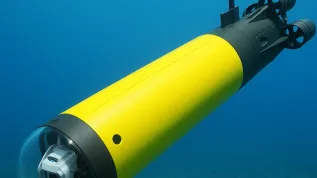
National Centre for Nuclear Research signed a cooperation agreement with the Joint Research Centre (JRC). Thanks to the agreement, Polish scientists will have a greater impact on EU policy, including the development of nuclear technologies.
Joint Research Centre (JRC) consists of six scientific institutes in the European Union (institutes in Belgium, Germany, Italy, the Netherlands and Spain). These research centres and headquarters in Brussels form an independent, scientific and technical advisory body for the European Commission, the European Parliament, the Council of the European Union and the member states. The mission of the JRC Directorate-General is to provide scientific and technical support for the conception, development, implementation and monitoring of European Union policies.
On Monday last week, the heads of six JRC research teams visited the centre in Świerk and met with Polish scientists - the National Centre for Nuclear Research spokesman Marek Sieczkowski reported in a release sent to PAP.
Under the agreement, the National Centre for Nuclear Research has the opportunity to co-create the Joint Research Centre research programs. Polish scientists will participate in the development and coordination of European Union policies, concerning in particular the development of nuclear technology in areas such as energy, economy, cyber security and medicine.
"Cooperation agreement with the JRC is the result of the high international position of Polish scientists and our role in research policies of the European Union - said director of the National Centre for Nuclear Research, Dr. Krzysztof Kurek. - It also opens new opportunities, including the upcoming Horizon 2020 projects".
Kurek added that an example of areas of mutual cooperation may be the development and implementation of new radiopharmaceuticals. "Quick and accurate diagnosis combined with effective treatment is today one of the biggest challenges of medicine. Poland has a lot of success in this area and intends to intensify the work related to the development of nuclear technology for the protection of human health and life" - said the National Centre for Nuclear Research director.
Nuclear medicine is just one of the areas of mutual cooperation in the development of nuclear technology. Further topics include materials research, nuclear safety, radiation protection as well as information and education activities.
These issues were discussed during the visit of European Union experts at the National Centre for Nuclear Research. The work meeting was a prelude to determining the directions of cooperation and undertaking joint scientific projects.
The agreement between the JRC and the National Centre for Nuclear Research was signed on February 2 in Brussels.
PAP - Science and Scholarship in Poland
lt/ mrt/
tr. RL













